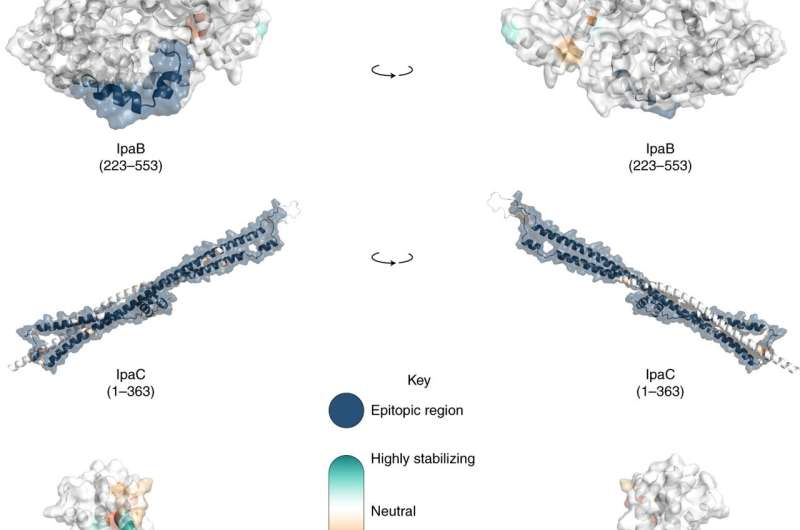Genomics study helps guide shigella vaccine development


A new genomics study led by the University of Liverpool will help guide the development and use of vaccines against a globally leading cause of severe diarrhea in children: shigella.
Shigella are the leading bacterial cause of severe childhood diarrhea in low-and middle-income countries (LMICs) and are becoming increasingly antimicrobial resistant. However, there is no licensed vaccine widely available for shigella and one of the main challenges in its development is the considerable genomic and phenotypic diversity of the bacteria.
In a new paper published in Nature Microbiology, researchers analyzed whole-genome sequences of 1,246 shigella samples systematically collected from seven LMICs to characterize this diversity, which is essential to informing vaccine development and implementation, and other aspects of disease control.
The unparalleled collection of samples covered all four shigella species (S. sonnei, S. flexneri, S. boydii, and S. dysenteriae) and was collected as part of the Global Enteric Multicenter Study (GEMS) between 2007 and 2011.
The study highlights pathogen features that will complicate current vaccine approaches, regional differences in shigella diversity, as well as determinants of antimicrobial resistance.
Among the findings are that shigella sonnei contributes at least six times more disease than other shigella species relative to its genomic diversity, and that existing diversity and adaptative capacity among S. flexneri may generate vaccine escape variants in less than six months.
The research also reveals the convergent evolution of resistance against ciprofloxacin, the current WHO-recommended antimicrobial for the treatment of shigellosis.
Dr. Rebecca Bengtsson, who led the data analysis, said: “Pathogen genomics is a powerful tool that has a wide range of applications to help combat infectious diseases. Through genomic analyses of an epidemiologically representative dataset, we revealed the extent of shigella population genomic diversity impacting those who are most vulnerable to shigellosis, and the implications that this diversity has on current vaccine strategies.”
Many current vaccine approaches focus on the shigella serotype, but there are > 50 serotypes among shigella and these can change quickly to generate immune escape variants. An attractive alternative and/or complement to this approach are specific-subunit vaccines that target highly conserved proteins and may offer broad protection, but the degree of antigenic variation in these targets is unknown. This study explored the amount and type of variation in the antigens and the speed at which they can change serotypes. Overall, the results suggest that protein-based antigens provide more stable vaccine targets for this globally important pathogen.
Source: Read Full Article